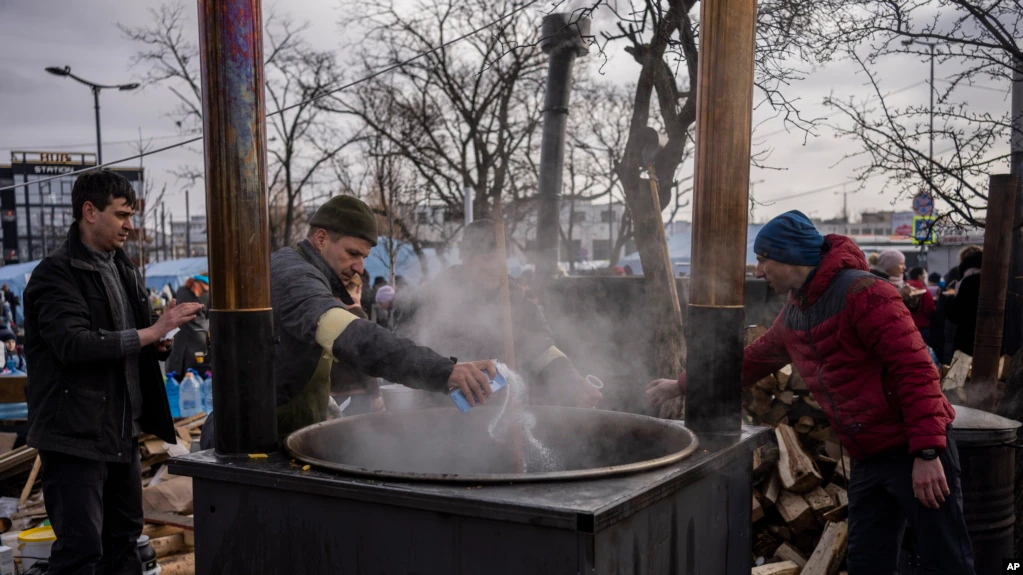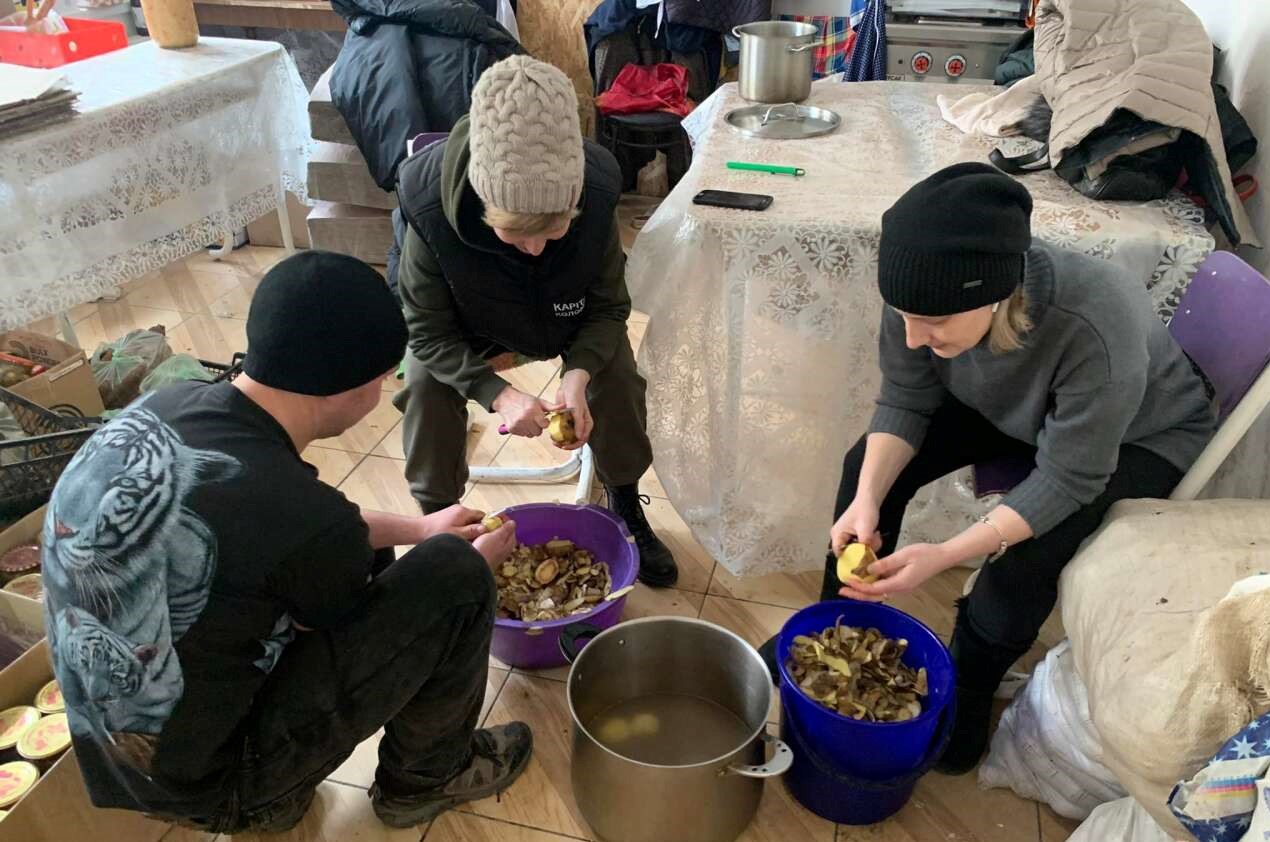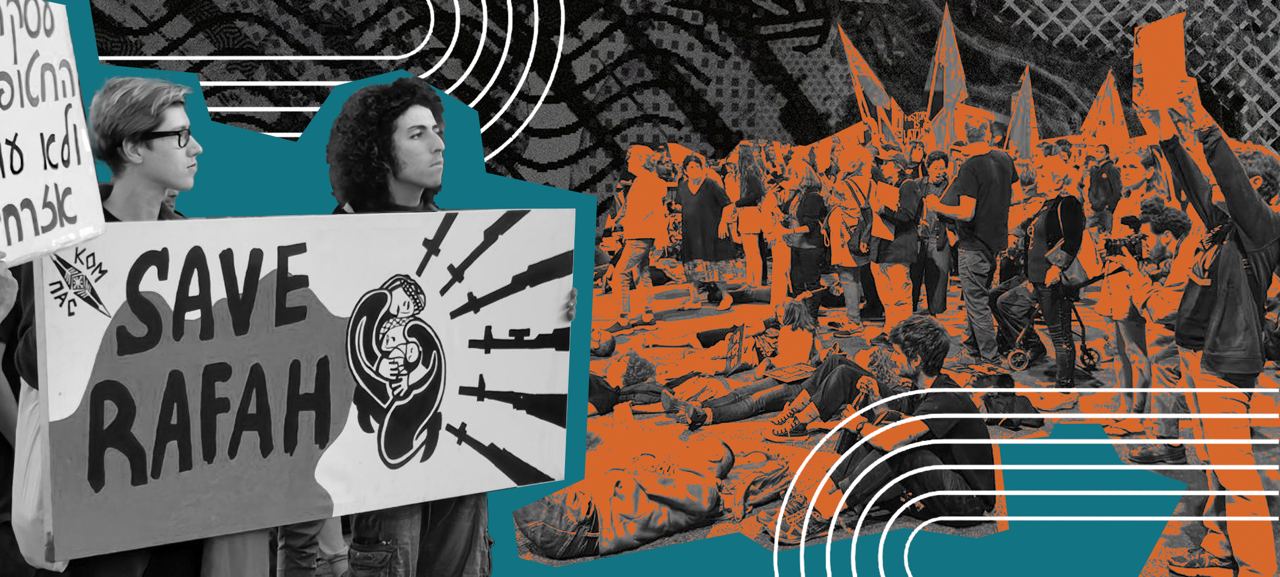I am writing this text on the night of 7-8 March in Lviv. This is the fourth year of my living in Lviv, and I met the war here. It seems that my whole life has passed since my mother's morning call. She told me that “we are being bombed.” My life and the lives of everyone around me have broken down and will not be the same as before. But we will live somehow. I would like to share with the readers of Commons my observations on how a new life emerges in my city. I know that the next breakdown can happen even before I finish this text, so am writing quite in a hurry.
Note №1: “On method”
On the first day of the war, I wanted to start recording what was happening to me and around me, but between air-raid alarms, panic attacks, and the transportation of my family from Kyiv to Lviv, I could not put my words into sentences. On the third day, I put myself together, as did colleagues ready to interview Lviv residents who had been living here before the war started. After consulting with colleagues who worked in Donbas on how to collect data, with no theoretical background, no time, no energy, we started asking people for interviews. We ask the people of Lviv about their past and new everyday affairs, about the type of activism they have now joined, and how their political views are changing. This work is not yet complete, but in these notes, I have already relied on the recent in-depth interviews, my own observations, and several diaries shared by the citizens.
Note №2: "On city"
Lviv has become a key hub for receiving refugees. Similar processes have taken place throughout all of Western Ukraine, but so far I can only talk about the city where I personally interact with people and see them with my own eyes. The fear of generalizations will be discussed later, and for now, I will simply outline the geography of my reflections. What has happened to Lviv during the last two weeks?
I'll start with the housing issue. The city housing market is split into two parts. The first is the commercial housing market. Despite the mayor's calls to impose a moratorium on rent, prices have risen several times depending on the landlords’ appetites. The free market has shown itself as it is. People fleeing the bombings will be left homeless if they cannot pay $1000 for a small apartment. Another part of the market shows the opposite tendency. Many landlords leave the "old" price because they know that instead of three tenants they now have ten. Some apartments left by those who went abroad became shelters. District administrations, schools, and other municipal institutions, as well as offices and yoga studios, become temporary housing places for thousands of refugees, their children, and animals.
There is a redistribution of wealth impossible to imagine before the attacks on Kyiv, Kharkiv, and other cities. Similar processes occur to varying degrees with clothing, food, cars, and other basic goods, including psychological support.
Caption under the photo: "The war accelerates: quickly designed, printed, collected, and put around the city with the help of nice volunteers. A poster to print is in the stories. If you have time and inspiration, print, and hang near your home or wherever. The flow of people today is endless".
This redistribution is activated by thousands of people who spread the information about available goods and requests for them, prepare, deliver, arrange housing, bring things, unload humanitarian aid, communicate a lot, negotiate, listen to and hear each other. But the main thing is that they self-organize, find a way invent how to be useful in times when individualistic strategies do not work.
Chats – from activist to district and sport – spread mutual assistance. Municipal, private, public institutions have changed their function. The city has become a large network, where one can find even the strangest things nobody knew about. They chats include both people with activist experience and those who are skeptical of any form of the grassroots movement. Self-organized networks are becoming more effective than separate actions of city and regional authorities. All this is led by the fear that tomorrow we will not be able to find shelter, the food will run out, there will not be enough people willing to transport others from the station to the shelters at night. And so it happens – someone is left to freeze at the railway station, especially those who have fewer skills to use social networks, fewer contacts in the city, and less physical strength. But most find help. I hope it will be the same tonight.
Simultaneously with humanitarian activism, similar networks operate for military purposes as well. Lviv deals with everything at once – from transporting equipment to Kyiv to weaving camo nets for the army. These networks of solidarity extend far beyond the city and the country.
Note №3: "On breakdown"
At the times of revolutions or wars, there also are breakdowns of social structures that have shaped the flow of our lives before. We face the things the most daring utopian dreamers could not have imagined before. If a month ago someone told me that thousands of people would have an opportunity to sleep warm, wash, get dressed and eat in Lviv for free, I would have just smiled. Now I spend money only on the needs of others, mine are satisfied with the strength of the team I am in, except for the coffee and pastries that I buy during a daily walk on my own.
In a certain part of society, commodity-money relations have disappeared, and instead, we are building "something qualitatively different." I will not articulate now what exactly. My ideas of the world, both political and theoretical, were ruined along with the other world I lived in. As Volodymyr Artyukh aptly pointed out, the "old" frameworks for analysis no longer work. They need to be reconsidered. The new ones have to be invented.

Volunteers prepare food for displaced persons near Lviv railway station. March 3, 2022 | Voanews
New theoretical frameworks need to be more sensitive to the practice. And now we can observe it, to be involved, to see people behind institutions and structures. So far, this "new" has a lot of "old". We hear about situations of xenophobia against Roma and transgender people, about sexual harassment in shelters, about the violence of patrols. And we will hear a lot about exploitation, gender-based violence, and other darkness we lived in, and which is still here. The violence of the Putin regime is pushing other forms of violence. But let us hope that the breakdown we are experiencing now will give us a chance to develop this "something qualitatively different."
Note №4: "On structures"
I do not know what will happen to me, my family, and my loved ones tomorrow. Maybe we will wake up, respond to messages with requests for housing and transportation, write that we are fine. Then we will drink coffee and prepare food in the shelters for refugees, work, volunteer, read the news, cry, smoke a lot, and hope. Or maybe we will run away from the bombing. But now I see new social structures that did not exist before. What will happen to them? These structures may be destroyed. They may move to other countries and continue to develop there. When Ukrainian society wins this war and lives the dream of a peaceful life, these structures can serve the needs of the state's repressive apparatus and reproduce various forms of oppression. But at the moment of this breakdown, there is hope that they will remain, strengthen and focus on the main thing – people’s lives.
Published with the support of Rosa Luxemburg Stiftung in Ukraine with funds from the Federal Ministry for Economic Cooperation and Development of Germany.




